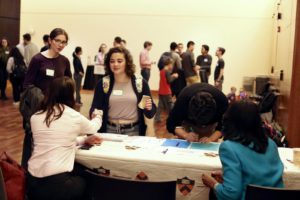Don’t tell your mom I told you this, but the Funding Fairy isn’t real. And it took me until this week to realize it.

Since before even arriving on campus, I’ve heard story after story of Princeton’s generosity: the fully-funded research project, the all-expenses-paid trip to Cuba, the paid summer fellowship. Dazzled by these stories, I pictured the University as a Funding Fairy with a magic wand (or a pushover parent in a toy store – ready to pull out their wallet whenever I pointed at something I wanted). Unfortunately, however, this Funding Fairy is not real; funding is not awarded nearly as liberally as I imagined.
Earlier this week, I decided I wanted to spend winter break translating Yiddish poetry in archives in New York City. I’ve been itching to study Yiddish for months, but, because Princeton doesn’t offer a Yiddish program (yet), I’ve had to limit my Yiddish projects to vacations. Shortly after thinking of my poetry translation idea, I shot an email to the Lewis Center for the Arts asking for a small bit of funding for the project. A few hours later, I received the response: “We don’t have winter funding.” And like a child discovering the coin under her pillow was no fairy gift, I realized securing funding is more complicated than just asking for it. And I’m actually grateful for that.




